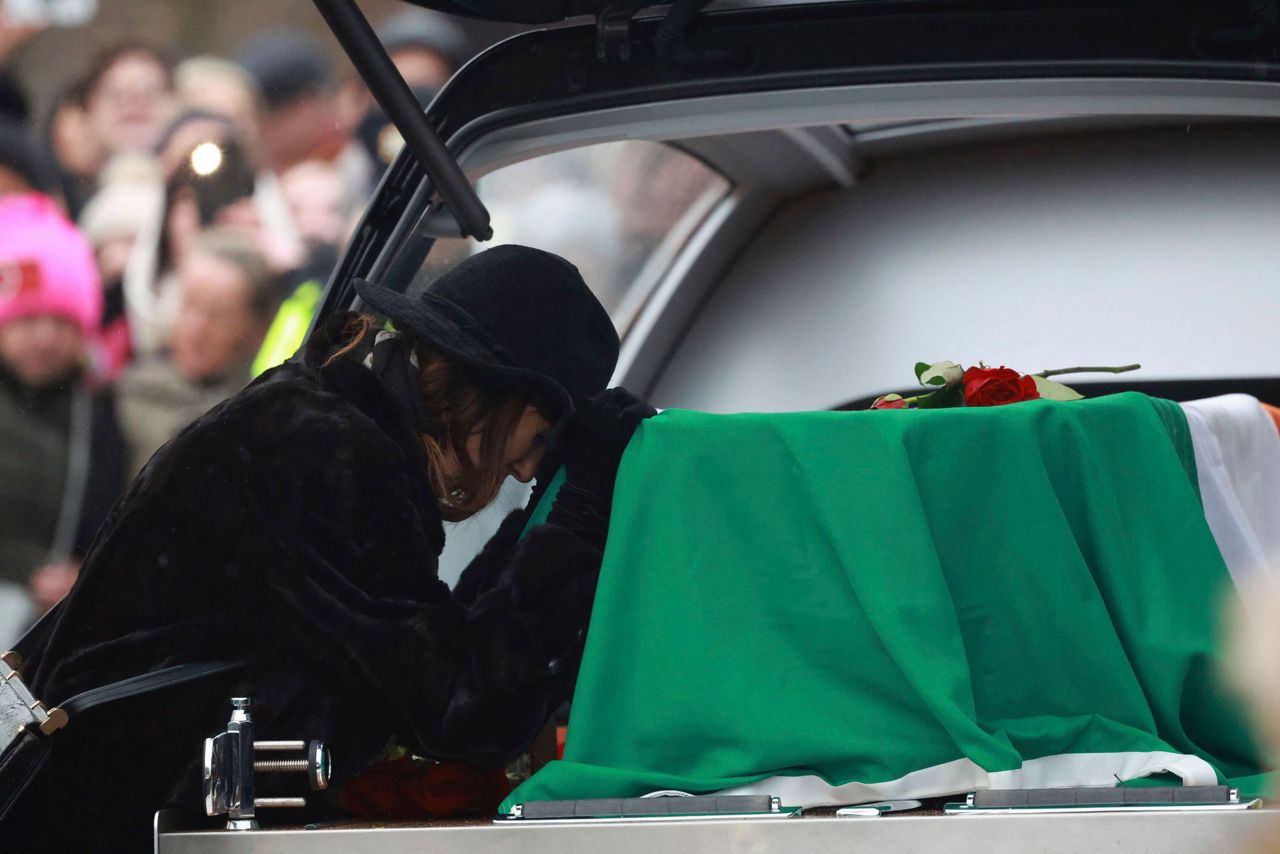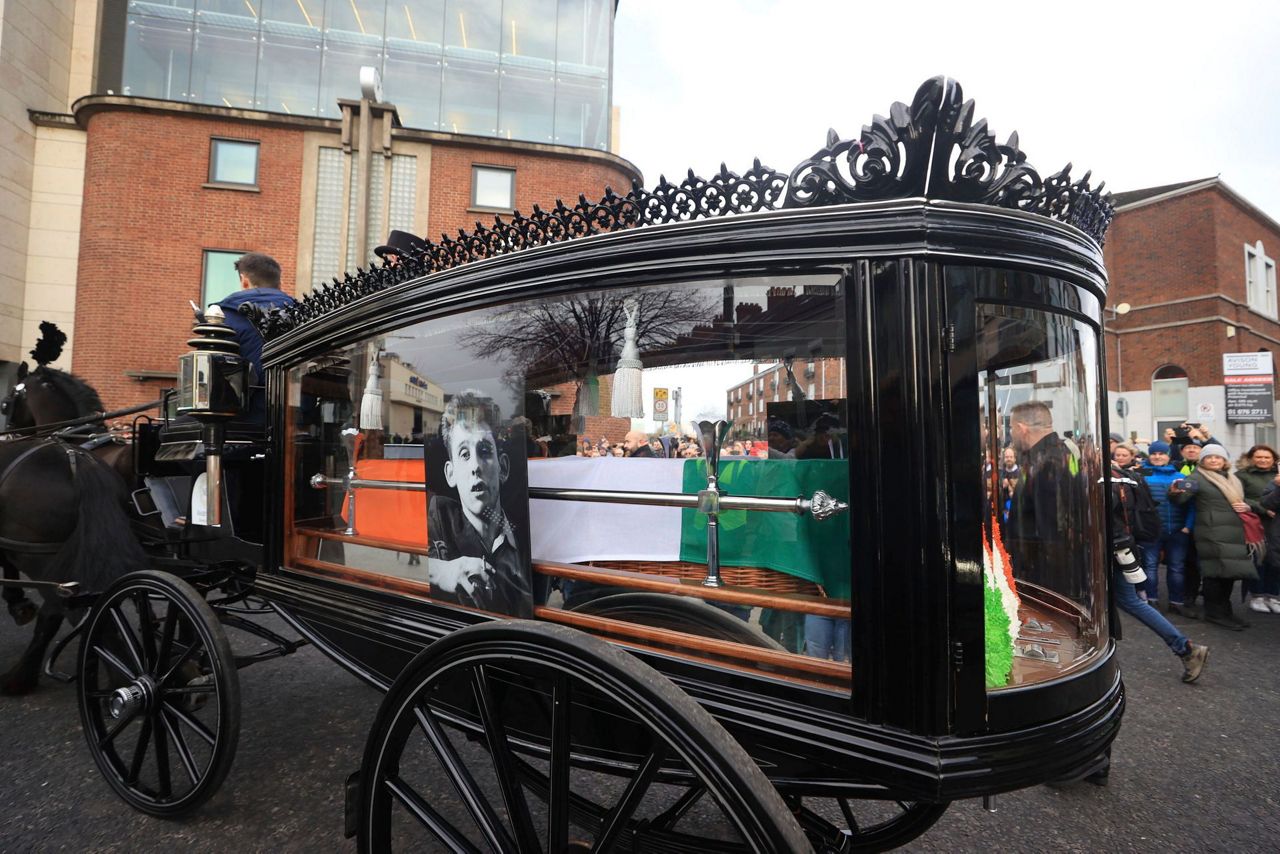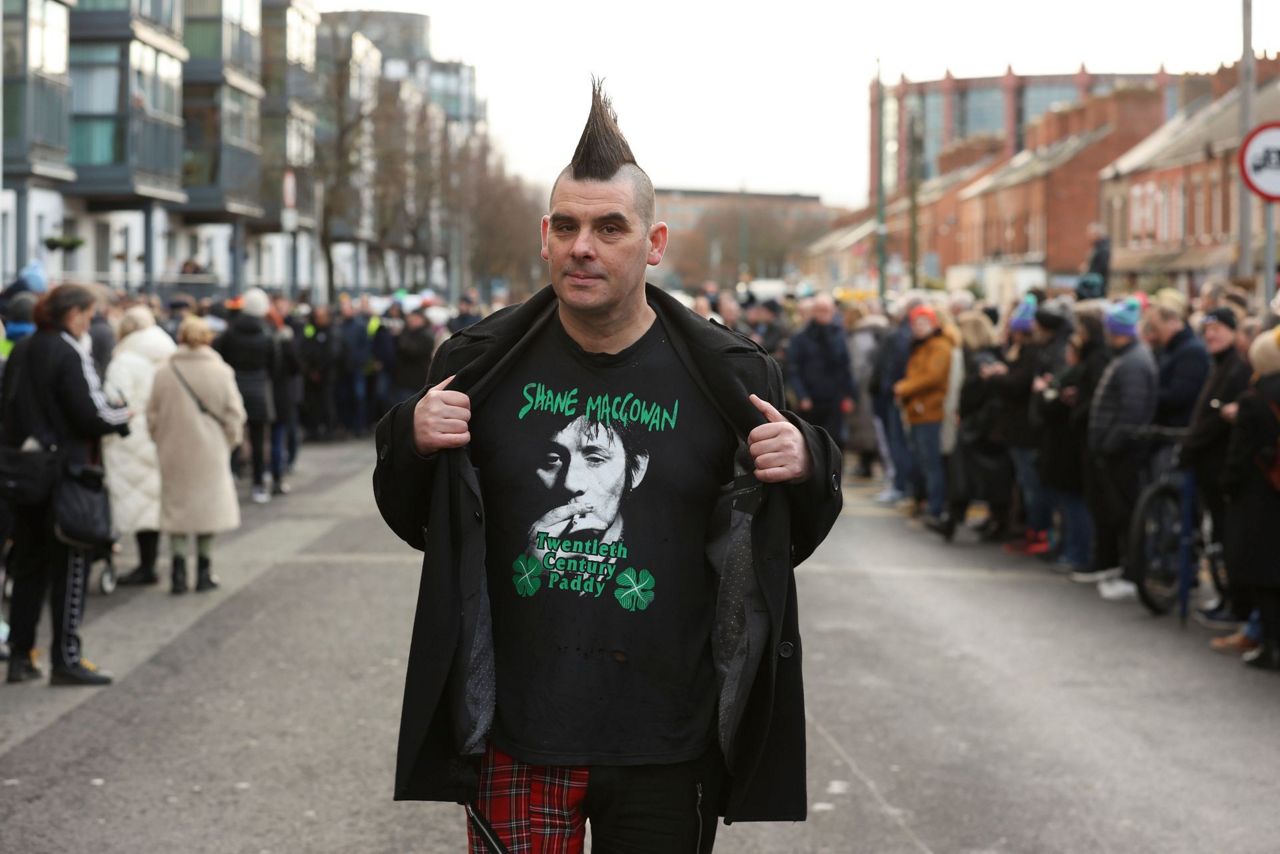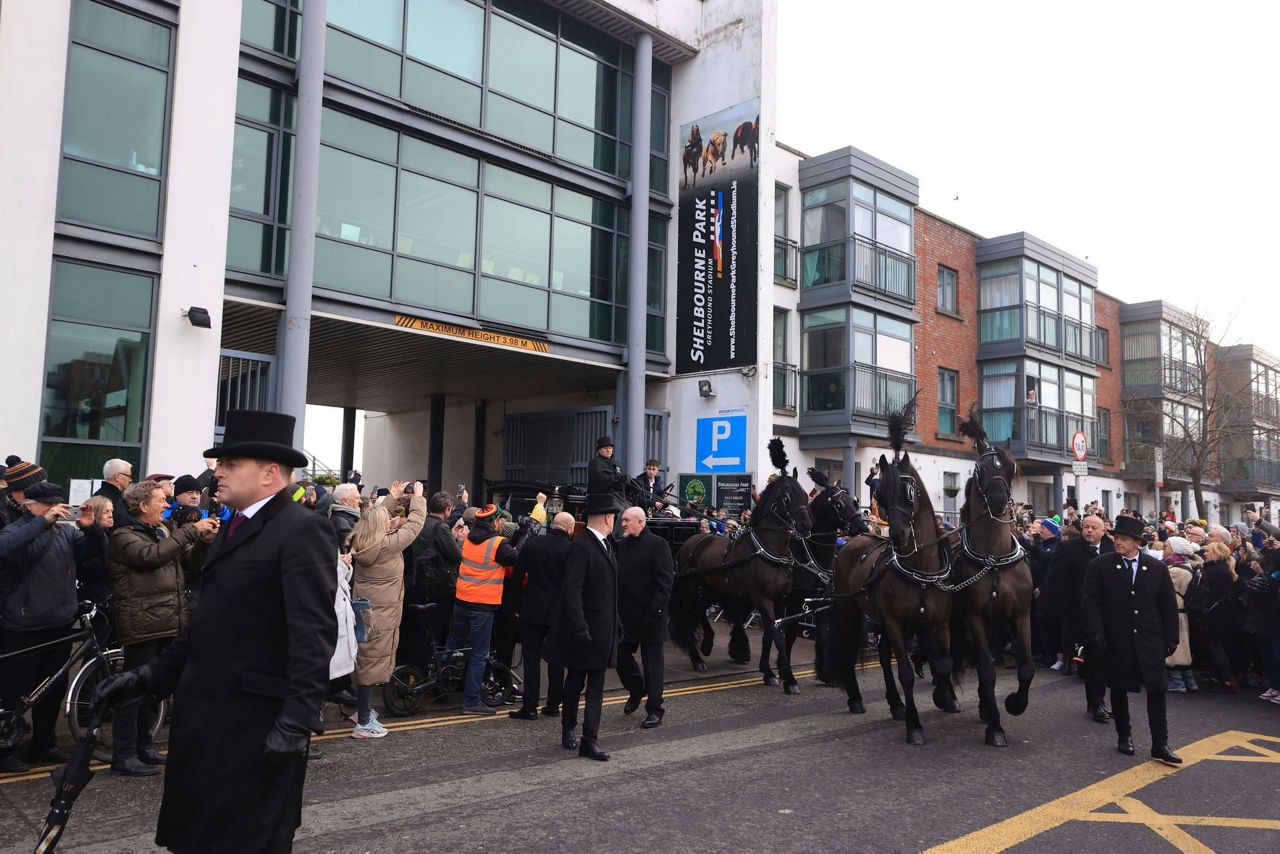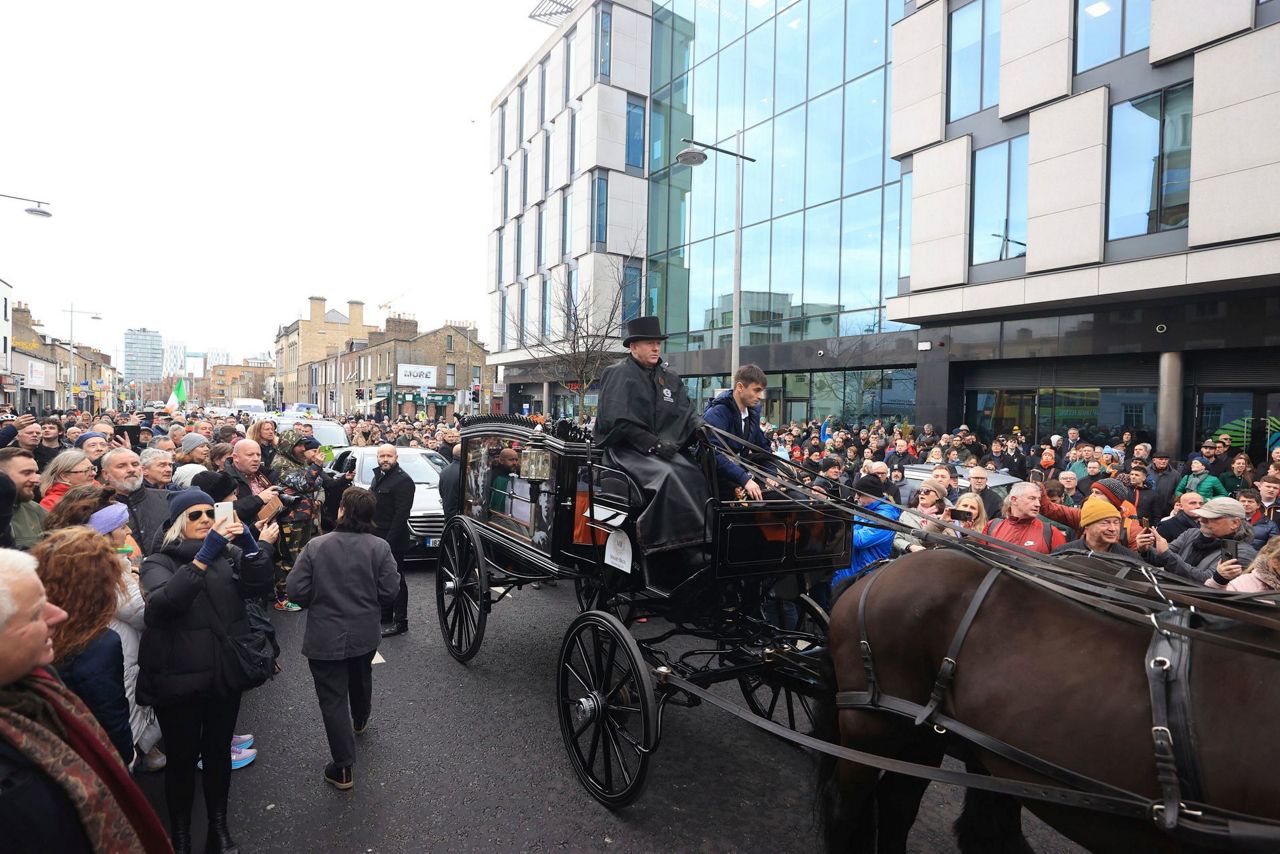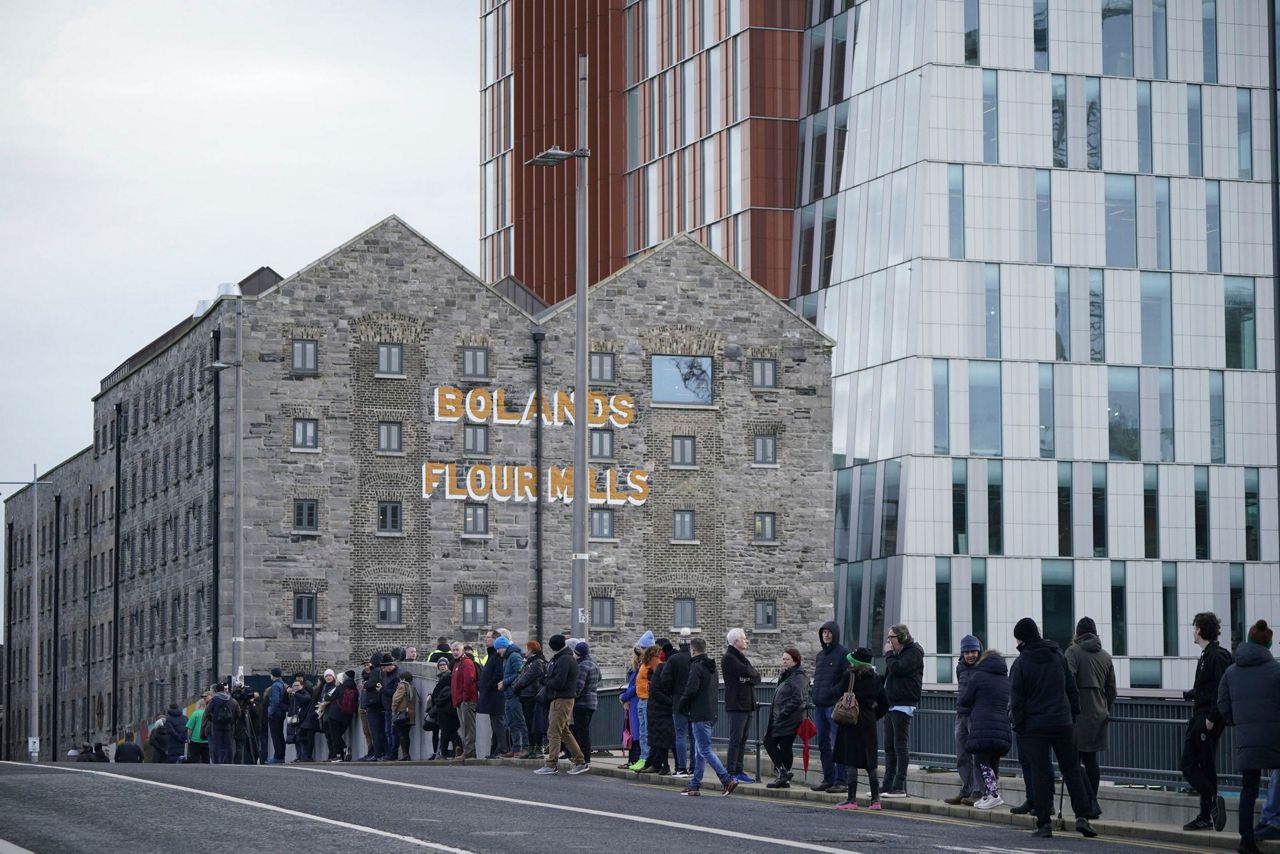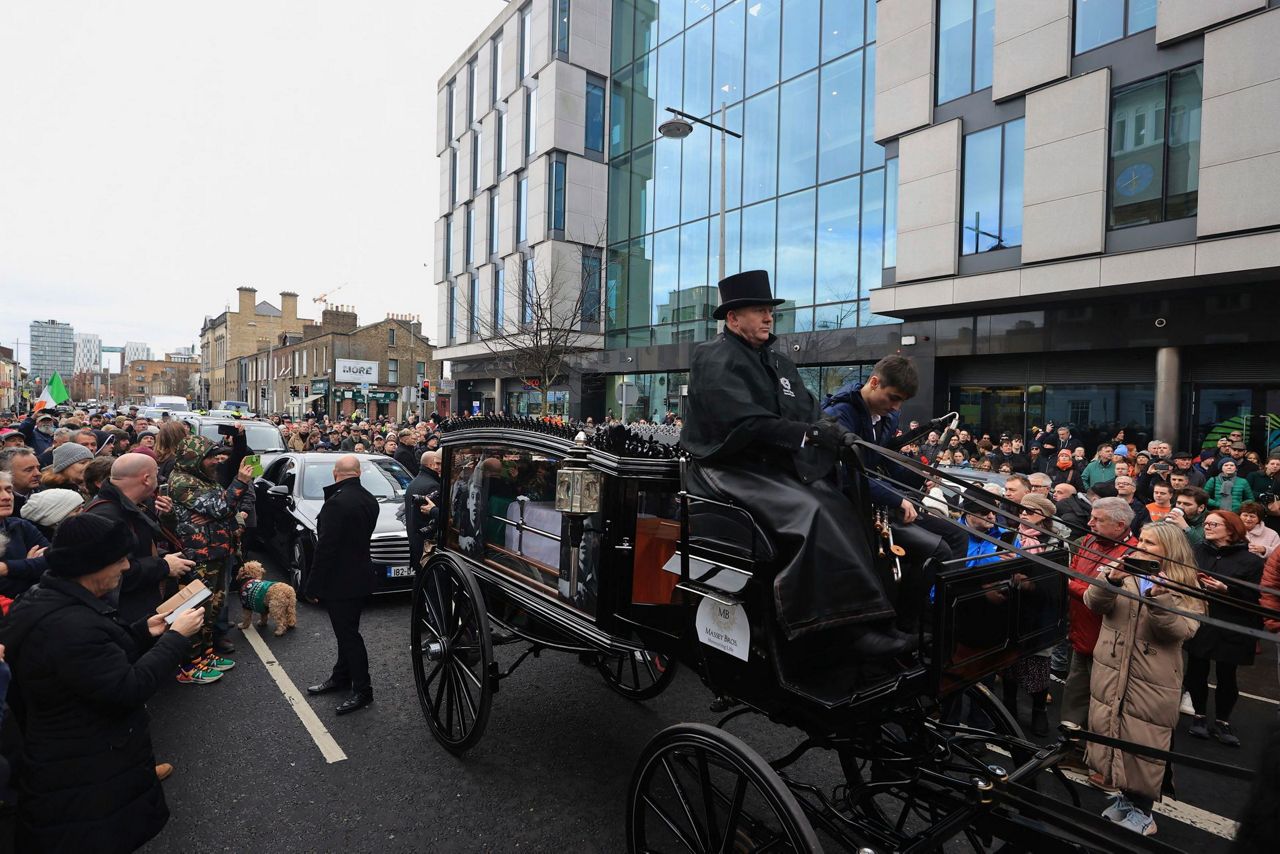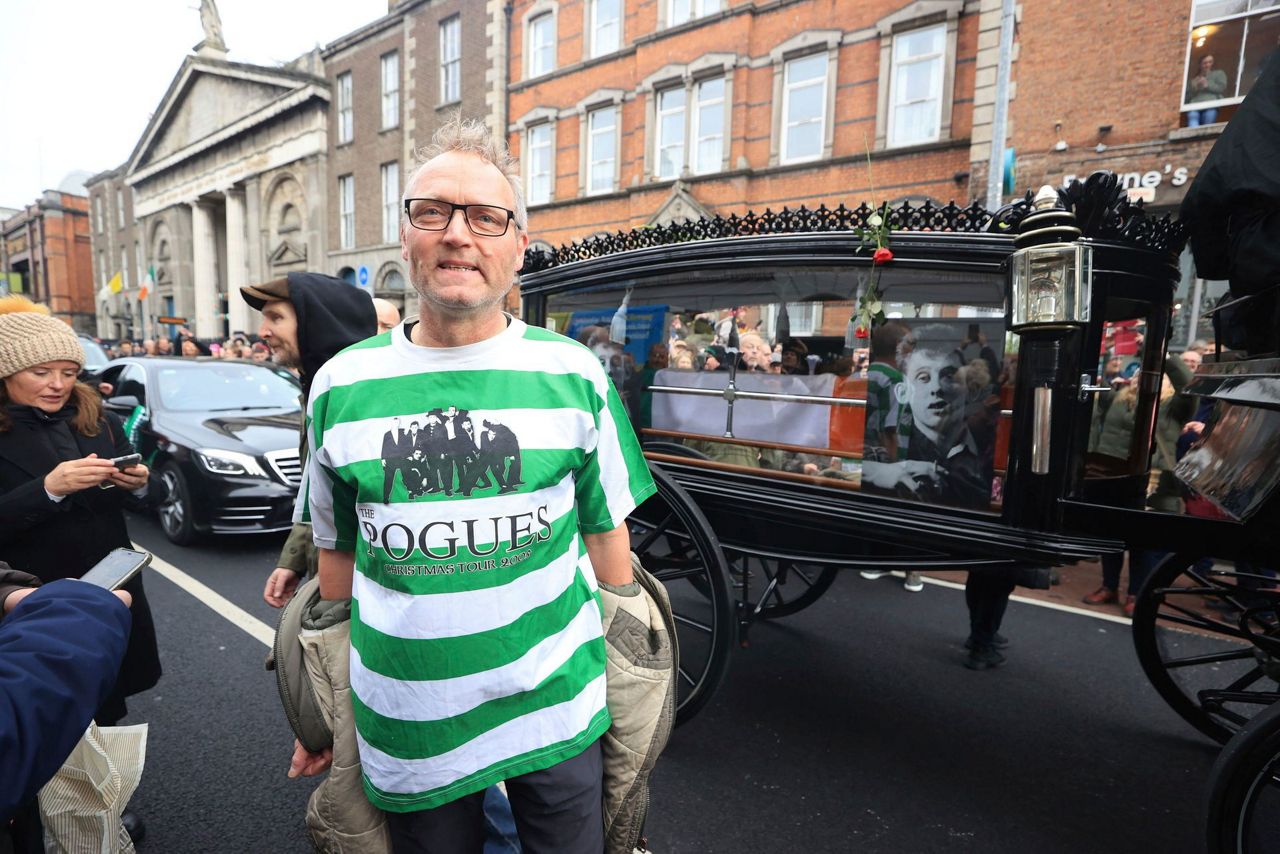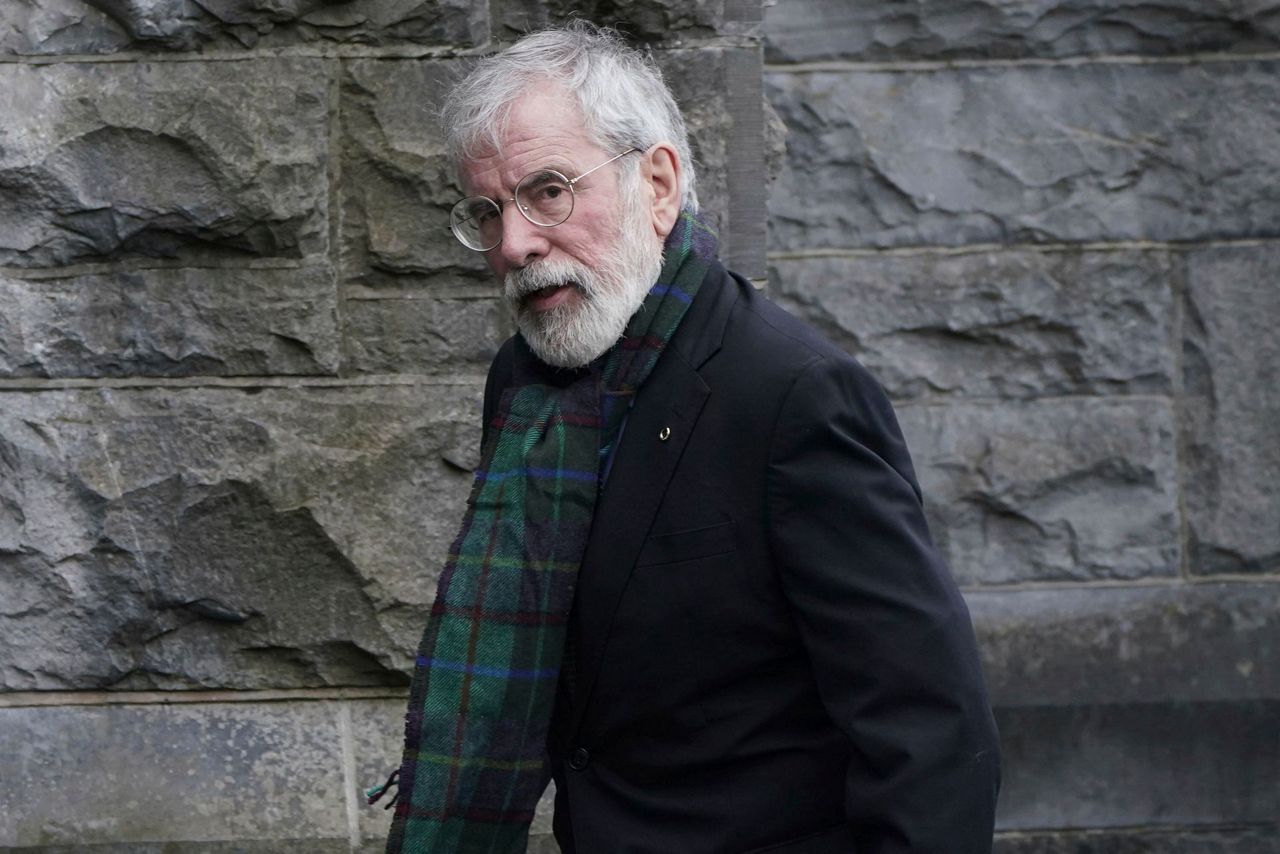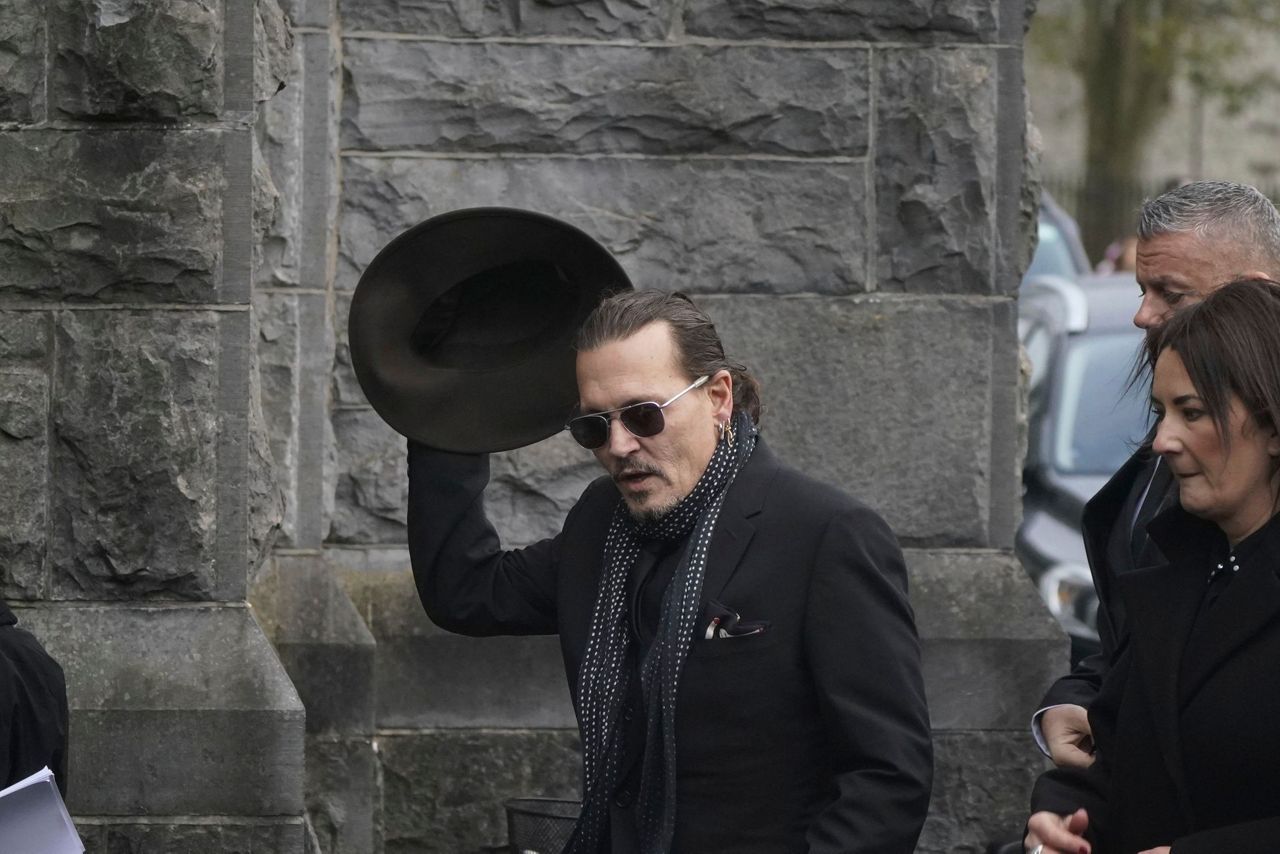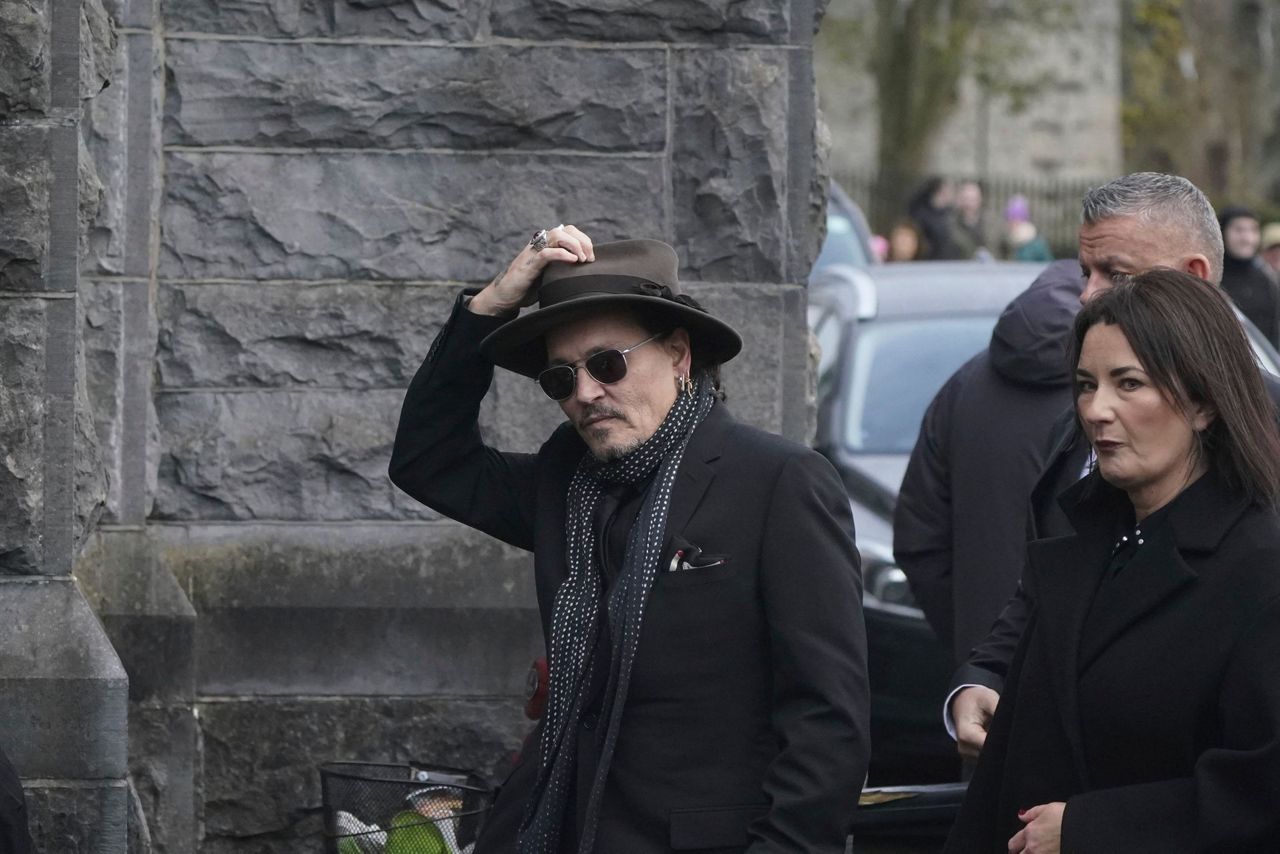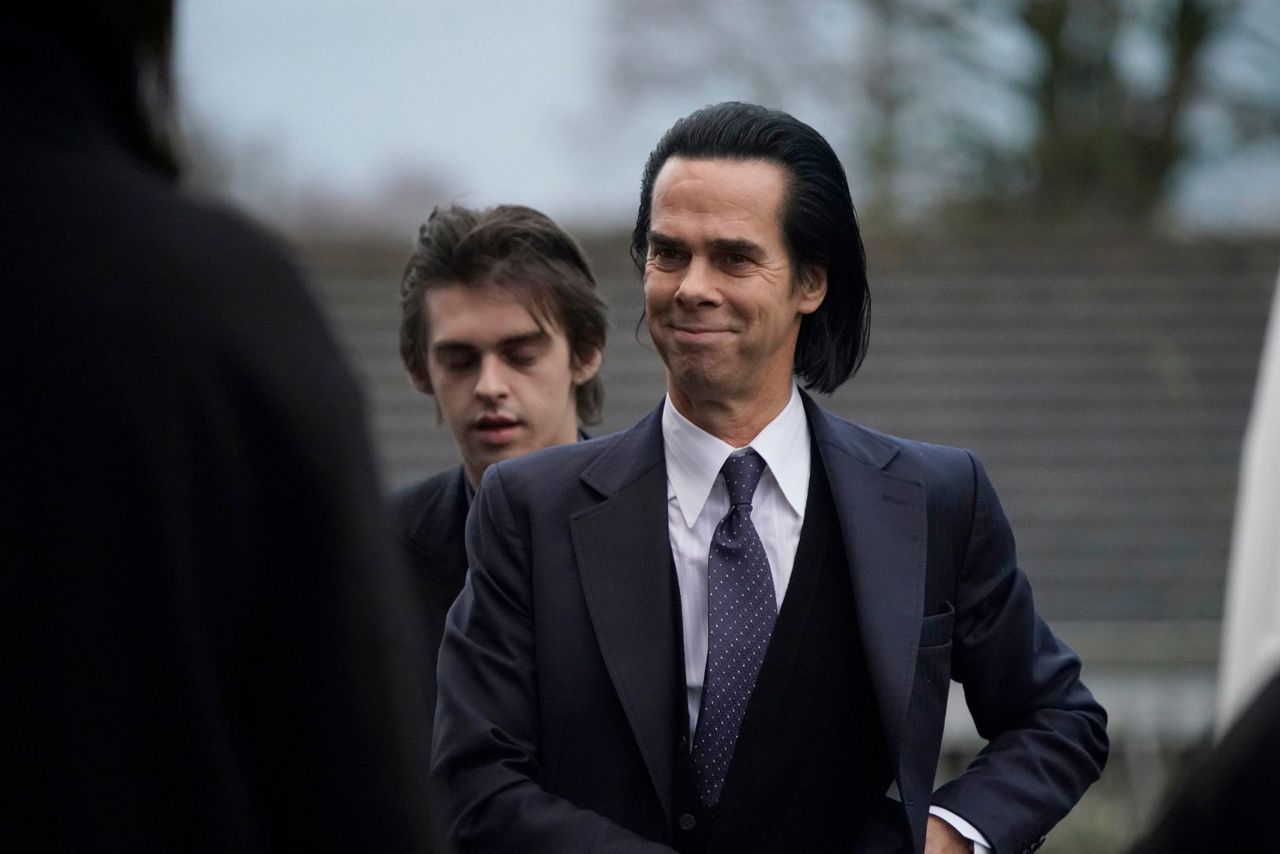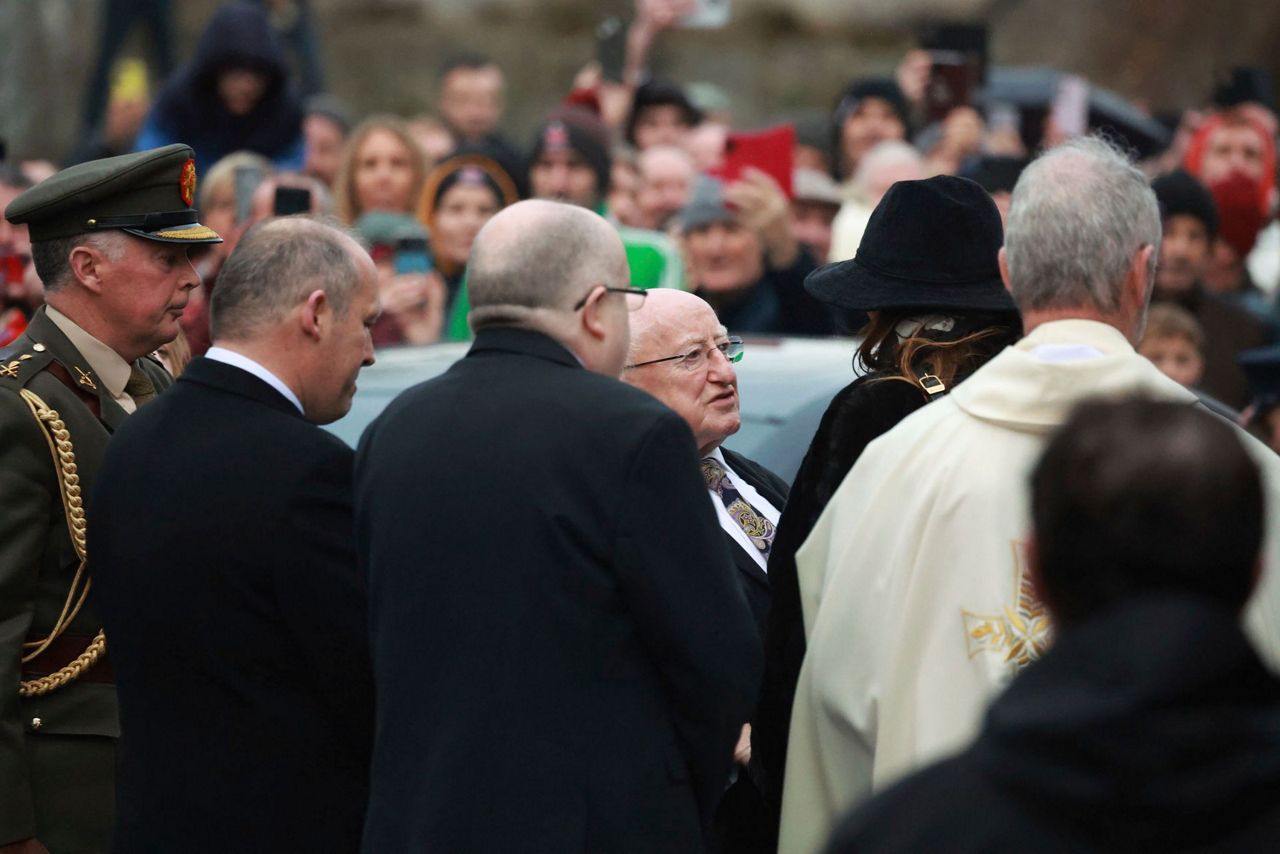LONDON (AP) — Thousands of people lined the streets of Dublin on Friday to say goodbye to The Pogues frontman Shane MacGowan as his coffin wound through the Irish capital before a small-town funeral attended by family, neighbors and friends including Johnny Depp and Nick Cave.
MacGowan died Nov. 30 at the age of 65 after a lifetime of drinking, carousing and writing songs that fused Irish traditional music with the spirit of punk.
He became an Irish cultural icon, and Ireland's President Michael D. Higgins was among hundreds of people who packed St. Mary of the Rosary Church in the town of Nenagh for the funeral Mass.
Mourners at the service, in MacGowan's ancestral home county of Tipperary some 100 miles (160 kilometers) southwest of Dublin, included former Sinn Fein leader Gerry Adams and Irish actor Aidan Gillen, who both gave readings. There was also a recorded reading from Bono of U2. Depp, a friend of the musician, was among those who helped lead the prayers.
Father Pat Gilbert welcomed “the world of people this great man influenced, encouraged, entertained and touched” to the service, which was broadcast live on television and online.
The priest called MacGowan “a poet, lyricist, singer, trailblazer" whose "raw, vibrant, energetic, earthy soul-filled expression gave us hope and heart and hankering.”
At the front of the Catholic church, the singer's casket was heaped with red roses, alongside a black-and-white photo of a youthful MacGowan. Friends and bandmates carried up symbols of MacGowan's life, including a Led Zeppelin record, a copy of James Joyce’s “Finnegan’s Wake,” a DVD of “The Godfather,” a statue of the Virgin Mary and a Buddha.
“Shane was a lover of all religions,” his widow Victoria Mary Clarke said.
Musicians including Cave and Imelda May performed several of MacGowan's songs during the service, including a rousing rendition of “Fairytale of New York” led by Glen Hansard and Lisa O'Neill that had the congregation dancing in the aisles.
Earlier crowds, gathered under rainy skies, applauded as a horse-drawn glass-sided carriage bore MacGowan’s coffin, draped in an Irish tricolor flag, through the streets of Dublin, A marching band struck up “Fairytale of New York,” The Pogues’ most famous song, and groups of people sang other tunes made famous by the band, including “Dirty Old Town,” a standard recorded by The Pogues in the 1980s.
Many mourners said they had vivid memories of the band’s rowdy performances.
“It is imprinted in my mind forever, just the madness and mayhem, the raucous nature of his singing and the music they were playing," said Aidan Grimes, 60. “Through the years he evolved into a great poet and he will be sadly missed.”
Darragh McColgan, from Dublin, said MacGowan “was representative to me of what being Irish is.”
“(This) will be a day we knew was coming but it won’t be easy to deal with because of what a big impact he was," McColgan said.
Born in England to Irish parents, MacGowan emerged from London’s punk scene to found The Pogues, who melded Irish folk and rock ’n’ roll into a unique, intoxicating blend. MacGowan became as famous for his sozzled, slurred performances as for his powerful songwriting, which captured the pain and joy of hardscrabble lives and the Irish emigrant experience.
Several of his songs have become classics, including “Streams of Whisky,” “A Pair of Brown Eyes,” “If I Should Fall from Grace with God” and the bittersweet Christmas ballad “Fairytale of New York."
MacGowan's creativity went alongside an insatiable appetite for alcohol and drugs that eventually got him kicked out of The Pogues. Clarke, his widow, said MacGowan “was an explorer.”
“He explored the boundaries of what you can do while you are still in a physical body. And his physical body lasted a very long time, considering what he did to it,” she said.
“His mind was capable of going to these places that normal minds don’t go to, and I give thanks for that."
Copyright 2023 The Associated Press. All rights reserved. This material may not be published, broadcast, rewritten or redistributed without permission.




